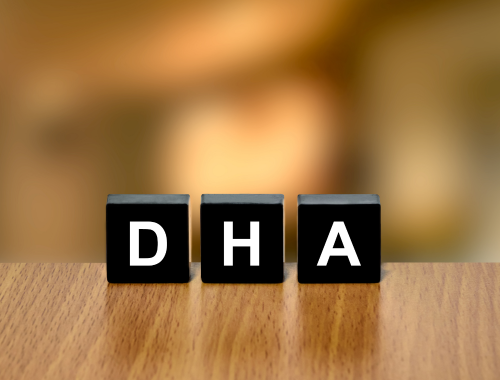Difference Between DHEA and DHA
DHEA, which is the short form of dehydroepiandrosterone, is one of the most common circulating steroid hormones in the human body, that is also a precursor to the human sex hormones. DHA is docosahexaenoic acid, an omega-3 fatty acid that is naturally abundant in fatty fish.

What is DHEA?
Definition:
DHEA, which is the short form of dehydroepiandrosterone, is one of the most common circulating steroid hormones in the human body, that is also a precursor to the human sex hormones.
Production:
DHEA is released by adrenal glands, and it later is broken down to produce the male and female sex hormones namely testosterone and estrogen. Synthetic DHEA is derived from foods like yam and soy however eating these food sources will not cause any rise in the DHEA levels in the human body.
Sources:
There are no exclusive food sources for increasing DHEA levels.
Importance:
DHEA supplements help reduce a multitude of body issues such as aging, erectile dysfunction, osteoporosis, and psychiatric diseases such as Alzheimer’s disease, and schizophrenia. DHEA levels are known to dampen inflammation in disorders like inflammatory bowel disease, rheumatoid arthritis, lupus, and psoriasis. DHEA is important to treat premature ovarian failure, adrenal insufficiency, HIV, coronary heart disease, and cancer.
During pregnancy:
DHEA supplements are not recommended to be taken during pregnancy.

What is DHA?
Definition:
DHA, which is docosahexaenoic acid, is an omega-3 fatty acid that is naturally abundant in fatty fish.
Production:
DHA is an omega-3 fatty acid. Omega-3 fatty acids are essential fatty acids that are not produced in the body and their only source is food intake.
Sources:
DHA is rich in fatty fish such as salmon, herring, sardines, and mackerel. It is also found in breast milk and is a component of formula milk for infants.
Importance:
DHA is vital for the nervous system development and its function. It is also essential for the development of the optical system of the fetus. Omega-3 fatty acids help reduce inflammation. These supplements are frequently used to resolve depression, arthritis, cardiac disease, and dysmenorrhea.
During pregnancy:
DHA supplements should be taken during pregnancy and breastfeeding.
Difference between DHEA and DHA
Definition:
DHEA or dehydroepiandrosterone, is one of the most common circulating steroid hormones in the human body, that is also a precursor to the human sex hormones. DHA, which is docosahexaenoic acid, is an omega-3 fatty acid that is naturally abundant in fatty fish.
Production:
DHEA is released by adrenal glands. It is later is broken down to produce the male and female sex hormones namely testosterone and estrogen. Synthetic DHEA is derived from foods like yam and soy however eating these food sources will not cause any rise in the DHEA levels in the human body. DHA is an omega-3 fatty acid. Omega-3 fatty acids are essential fatty acids that are not produced in the body and their only source is food intake.
Sources:
There are no exclusive food sources for increasing DHEA levels. DHA is rich in fatty fish such as salmon, herring, sardines, and mackerel. It is also found in breast milk and is a component of formula milk for infants.
Importance:
DHEA supplements help reduce a multitude of body issues such as aging, erectile dysfunction, osteoporosis, and psychiatric diseases such as Alzheimer’s disease, and schizophrenia. DHEA levels are known to dampen inflammation in disorders like inflammatory bowel disease, rheumatoid arthritis, lupus, and psoriasis. DHEA is important to treat premature ovarian failure, adrenal insufficiency, HIV, coronary heart disease, and cancer.
DHA is vital for the nervous system development and its function. It is also essential for the development of the optical system of the fetus. Omega-3 fatty acids help reduce inflammation. These supplements are frequently used to resolve depression, arthritis, cardiac disease, and dysmenorrhea.
During pregnancy:
DHEA supplements are not recommended to be taken during pregnancy. DHA supplements should be taken during pregnancy and breastfeeding.
Table of differences between DHEA and DHA

FAQs
Are DHA and DHEA the same?
No. DHEA or dehydroepiandrosterone is one of the most common circulating steroid hormones in the human body, that is also a precursor to the human sex hormones whereas DHA which is docosahexaenoic acid is an omega-3 fatty acid that is naturally abundant in fatty fish.
Does DHA convert to DHEA?
No.
Should I take DHA or DHEA for IVF?
DHA helps with ovulation and fertilization.
What are the benefits of taking DHEA?
DHEA supplements help reduce a multitude of body issues such as aging, erectile dysfunction, osteoporosis, and psychiatric diseases such as Alzheimer’s disease, and schizophrenia.
What is the downside of DHEA?
DHEA decreases high-density lipoprotein levels which is healthy cholesterol. It can also cause skin problems like oily skin and hirsutism.
What can I replace DHEA with?
Supplements like flaxseed Oil, glucosamine and Glutamine can be taken instead of DHEA.
- Differences Between Reptiles and Amphibians - May 17, 2024
- Difference Between Ophthalmology and Optometry - May 15, 2024
- Difference Between Fear and Anxiety - April 2, 2024
Search DifferenceBetween.net :
Leave a Response
References :
[0]Nestler, John E., John N. Clore, and William G. Blackard. "Metabolism and actions of dehydroepiandrosterone in humans." The Journal of steroid biochemistry and molecular biology 40.4-6 (1991): 599-605.
[1]Nieschlag, E., T. Walk, and A. E. Schindler. "Dehydroepiandrosterone (DHA) and DHA-sulfate during pregnancy in maternal blood." Hormone and Metabolic Research 6.02 (1974): 170-171.
[2]Horrocks, Lloyd A., and Young K. Yeo. "Health benefits of docosahexaenoic acid (DHA)." Pharmacological research 40.3 (1999): 211-225.
